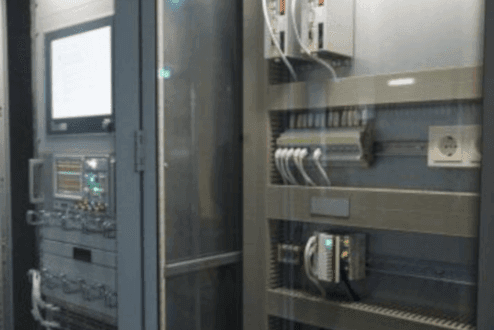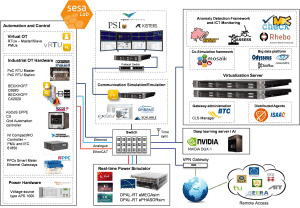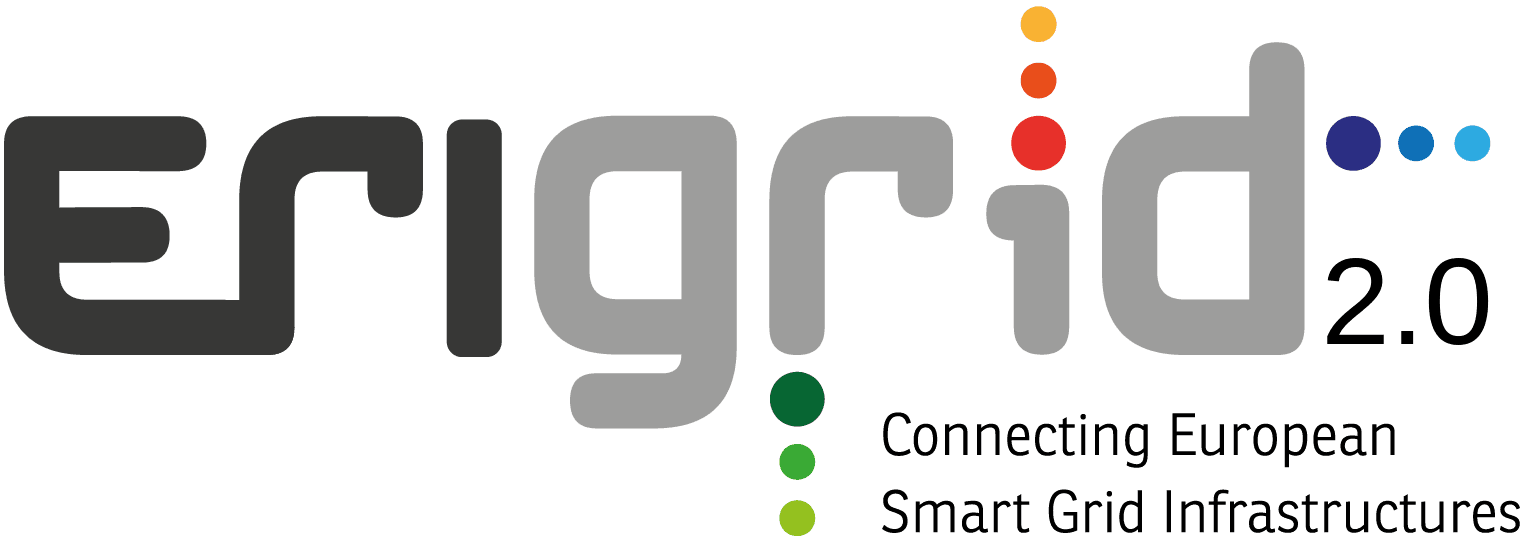
The Smart Energy Simulation and Automation (SESA) Lab allows evaluation and assessment of innovative solutions, among others, focused on resilient operation of cyber physical energy systems, energy system automation and SCADA and test-driven development of energy information/communication systems.
Location: Oldenburg, Germany

The Smart Energy Simulation and Automation (SESA) Lab allows large-scale, real-time co-simulation of impacts on energy supply systems under realistic conditions to facilitate integration of new components into the system; to identify critical situations; and to develop any adaptations that might be required. The SESA-Lab infrastructure comprises of four main features:
- Real-time and accelerated simulators and co-simulation frameworks for modeling of cyber physical energy system,
- Smart energy automation including physical and/or virtualized operational technologies,
- Industrial and open source SCADA systems for Power and ICT systems monitoring and management,
- big data analytic platform including anomaly detection.
A special feature of the SESA-Lab installation is the topology free allocation and combination of inputs and outputs. That means access and visibility can be controlled in a rule-based manner for the Ethernet- and EtherCAT-based component-to-component communication. To ease the simulation planning and execution process, SESA includes a virtualization server (VM cluster) that can provide virtual machines for software-based simulations (with the possibility of coupling with hardware-based real-time simulation and automation system in the Lab), development environments, or licensing servers for possible runtime environments. Such a virtualized and topology free allocation allow SESA to provide remote access to external users.
Simulation tools and frameworks:
- The OPAL-RT digital real-time simulator (eMEGAsim and ePHASORsim) software allows the execution of highly detailed, dynamic power grid and network component models on dedicated FPGA-based signal processors. ePHASORsim is capable of modeling to 30,000 nodes. The OPAL simulator provides analog I/O and following communication protocols for hardware and software interfacing: Analog inputs and outputs, 60870-5-104, IEC 61850 GOOSE and Sample Value, Modbus RTU/TCP, 118 for PMU.
- EXata Scalable Network and Attero Spirent are two commercial real-time communication network simulator and emulator to model and study the network behavior with high fidelity, accuracy, and precision.
- Mosaik is a flexible Smart Grid co-simulation framework that allows to reuse and combine existing simulation models and simulators to create large-scale Smart Grid scenarios. These scenarios can then serve as a test bed for various types of control strategies (e.g., multi-agent-based control) or other algorithmic solutions for future power systems.
- Offline simulation tools provided individually or as part of mosaic-based co-simulation platform such as PowerFactory, OMNET++, pandapower and MATLAB via virtualization server.
Automation components
- OT/Field devices
- Pheonix RTUs
- National Instruments NI CompactRIO
- Beckhoff PLCs
- KoCoS Grid Automation System
- Spitzenberger APS 1000 amplifier for CHIL testing
- Virtual or software-based OT (vRTU, vIED,vPMU) for large scale simulation
- Industrial SCADA system from PSI and Kisters
- Open source ICT monitoring and intrusion detection system (based on Snort and Check-MK) and industrial network monitoring and detection tool (Rhebo industrial protector)
Data analytic platform
- An open source data stream management system, Odysseus (https://odysseus.informatik.uni-oldenburg.de/),
- A nosql database, Cassandra (http://cassandra.apache.org/). The data stream management system can be used to pre- or post-process data and to make analyses on-the-fly.

- Large scale Real-time and offline Smart Grid simulations
- Holistic system approach (design of experiment based statistical experiments)
- Coupling heterogeneous simulations
- Transparent SCADA viewpoint and control of the conjointly (heterogeneous) simulated system
- Testing integrated control application
- Prototyping for Smart Grid control concepts
- Black / White / Grey Box testing
- Centralized and decentralized control approaches (e.g., Multi-Agent Systems)
- Standard compliant communication and control from devices up to SCADA systems
- Framework to assess cyber-security/communication integrity and response mechanism
- Development and testing of added value services based on Smart Meter Gateway Infrastructure
The OFFIS – Institute for Information Technology is associated institute of the Carl von Ossietzky University of Oldenburg in Germany and federally base-funded by the state of Lower Saxony. It is primarily dedicated to technology transfer of computer science knowledge into enterprises and organisations and has a total turnover of more than 13 million €. Approximately 230 researchers work in the three application areas Energy, Healthcare, and Transportation.
The ERIGrid project is executed by the Energy division, which dedicates its research to a variety of aspects regarding the future smart grid and deals with topics like interoperability, standardcompliant IT integration of distributed producers and consumers, large and flexible distributed software architectures for business contexts within the energy domain, simulation, and intelligent data management.
All the offered experimental systems included in the SESA-Lab are located in the Energy Department building in OFFIS, in Oldenburg, Germany.
For safety reasons, for critical applications, the users are not expected to operate the systems by themselves; even when safety instructions will be provided, tests will be carried out by staff of OFFIS. For the rest of applications and after ad-hoc training, the user group will have full access to the related facilities for the duration of the stay (with the support of OFFIS’s researchers and laboratory technicians when necessary). The scheduling of the experiments will be agreed and booked prior to the stay according to the availability of the involved staff and equipment. Administrative documentation for the access (contract, non-disclosure agreement, etc.) will comply with ERIGrid 2.0 common indications.
In addition to the general corporate services (Internet connection, canteen, etc.) and the support and advice on accommodation and transportation to OFFIS infrastructure, the access being offered includes supervision and help of OFFIS’s staff:
- As a complement to the pre-access contacts between the user group and OFFIS, the stay will start with an introductory meeting with a senior researcher for confirming the stay conditions (confidentiality, safety indications), scheduling the activities, explaining the on-site procedures, clarifying the logistics and technical details.
- Preparatory work: a laboratory technician will assist the users for the installation of the devices, electrical connections, use of the specific instrumentation, preparation of a test procedure (if necessary) on the basis of the users’ requests, and programming of the experimental conditions.
- The guest researcher will be placed within the building of the Energy Department in OFFIS and gets access to the lab facilities.
- OFFIS’s researchers will support the realisation and follow-up of the experiments.
- OFFIS’s researchers will support the results interpretation, data processing and analysis, and test report preparation
In principle, a typical stay of 3-6 weeks is foreseen for a single user group but this period could be extended depending on the concrete user project. The user group (usually 2 persons) can use the infrastructure for the defined time.
Reimbursement of expenses:
User expenses for the Lab Access are paid by ERIGrid (EU H2020 Programme). This includes travels to OFFIS (Oldenburg) by plane, accommodation, daily subsistence, and daily transportation during the stay.
For the user projects taking place in SESA-Lab, OFFIS will refund the stay expenses when the stay is finished (or on agreed periods): the user must declare the incurred expenses and present the invoices/receipts to OFFIS in order to get the refund.
Logical expenses must be made by the user: travels will be made in economy class and conventional hotels (not luxury) or equivalent accommodation will be used.
Remote lab access might be possible but needs to be discussed with the hosting organization.
Do you have questions left? Feel free to contact us below.
If your enquiry contains strictly confidential information, please leave your contact details below and the lab host will contact you personally.




